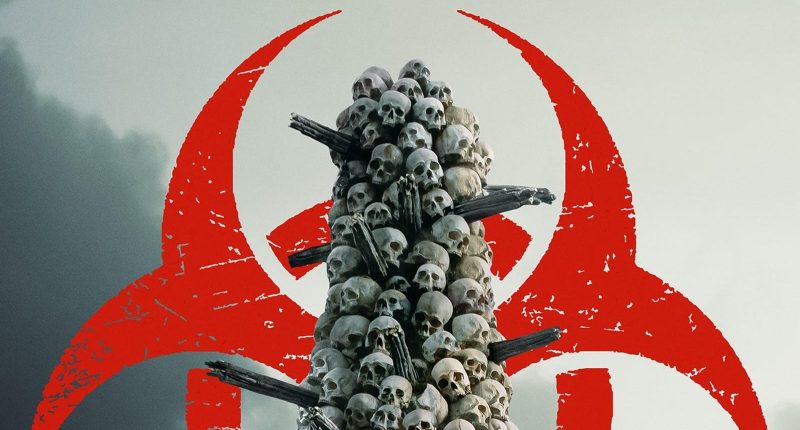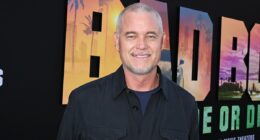Share this @internewscast.com
“28 Years Later” partial movie poster.
Sony Pictures Entertainment
Danny Boyle’s zombie thriller 28 Years Later, starring Ralph Fiennes, Aaron Taylor-Johnson and Jodi Comer, is new in theaters this weekend. How are critics reacting to the film?
Director Boyle and screenwriter Alex Garland (Warfare) reunite for 28 Years Later, more than two decades after the original film in the series, 28 Days Later, was released in 2002. Boyle served as an executive producer on the film’s first sequel, 28 Weeks Later, which was released in 2007.
The official summary for 28 Years Later reads, “It’s been almost three decades since the rage virus escaped a biological weapons laboratory, and now, still in a ruthlessly enforced quarantine, some have found ways to exist amidst the infected. One such group of survivors lives on a small island connected to the mainland by a single, heavily-defended causeway.
“When one of the group leaves the island on a mission into the dark heart of the mainland, he discovers secrets, wonders, and horrors that have mutated not only the infected but other survivors as well.”
Rated R, 28 Years Later also stars Alfie Williams and Jack O’Connell. The film plays in Thursday previews before it opens in theaters nationwide on Friday.
As of Thursday, Rotten Tomatoes critics have given 28 Year Later a 92% “fresh” rating based on 121 reviews. The RT Critics Consensus reads, “28 Years Later taps into contemporary anxieties with the ferocious urgency of someone infected with Rage Virus, delivering a haunting and visceral thrill ride that defies expectations.”
The RT Popcornmeter score, based on verified user ratings, as well as the film’s audience summary, is still pending.
What Are Individual Critics Saying About ‘28 Years Later’?
Amy Nicholson of the Los Angeles Times is among the top critics on RT who gives 28 Years Later a “fresh” rating, writing in her review summary, “It’s a kooky spectacle, a movie that aggressively cuts from moments of philosophy to violence, from pathos to comedy. Tonally, it’s an ungainly creature. From scene to scene, it lurches like the brain doesn’t know what the body is doing.”
David Ehrlich of IndieWire gives the film a “fresh” rating on RT as well, writing that 28 Years Later is “wildly unexpected for a film that’s been promised for so long, this tense and tender post-apocalyptic drama contends that to exist in denial of death is to corrupt the integrity of life itself.”
William Bibbiani of The Wrap also gives the film a “fresh” rating on RT, writing, “The filmmakers haven’t redefined the zombie genre, but they’ve refocused their own culturally significant riff into a lush, fascinating epic that has way more to say about being human than it does about (re-)killing the dead.”
Esther Zuckerman of Bloomberg News is also impressed by 28 Years Later, calling it in her review summary on RT “one of the strangest, most exhilarating blockbusters in recent memory. It’s a truly bizarre piece of art that’s somehow both grotesque and extremely moving.”
Nick Schager of The Daily Beast also gives the horror thriller a “fresh” review on RT, writing that 28 Years Later is “a gripping, unnerving, and altogether thrilling saga that both continues its predecessors’ illustrious legacy and initiates what’s shaping up to be a promising new horror trilogy.”
Richard Lawson of Vanity Fair also praised the film, writing on RT, “Grim and strange, 28 Years Later finds [Danny] Boyle once again following the irregular rhythms of his brain.”
As of this publication, only of RT’s top critics — Rafer Guzman of Newsday — gives the second sequel to 28 Days Later a “rotten” review. Guzman writes in his RT summary, “28 Years Later tries hard to outpace the original film and keep up with the culture at large, but instead, it lumbers slowly behind.”
Also starring Erin Kellyman and Emma Laird, 28 Years Later plays in Thursday previews before opening in theaters nationwide on Friday.











